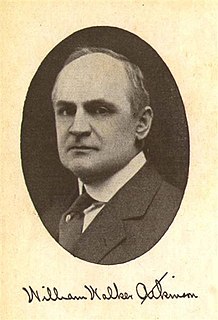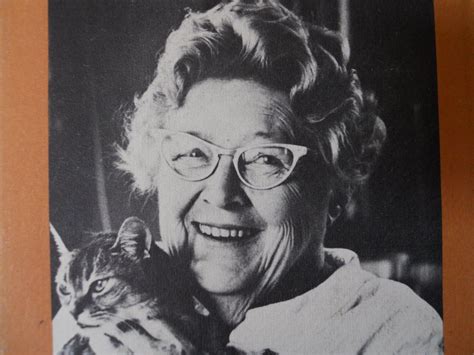A Quote by Ralph Waldo Emerson
Related Quotes
We are sending out thoughts of greater or less intensity all the time, and we are reaping the results of such thoughts. Not only do our thought-waves influence ourselves and others, but they have a drawing power - they attract to us the thoughts of others, things, circumstances, people, 'luck', in accord with the character of the thought uppermost in our minds.
Perhaps, after all, our best thoughts come when we are alone. It is good to listen, not to voices but to the wind blowing, to the brook running cool over polished stones, to bees drowsy with the weight of pollen. If we attend to the music of the earth, we reach serenity. And then, in some unexplained way, we share it with others.
Sentient beings, self and others, enemies and dear ones-all are made by thoughts. It is like seeing a rope and mistaking it for a snake. When we think that the rope is a snake, we are scared, but once we see that we are looking at a rope, our fear dissipates. We have been deluded by our thoughts. Likewise, mentally fabricating self and others, we generate attachment and aversion.
We are completely unaware of our true nature because we identify ourselves with our body, our emotions and our thoughts, thus losing sight of our unchanging centre, which is pure consciousness. When we return to our true nature, our thoughts and perceptions no longer appear as modifications of a single substance, they come into being and subside like waves of the ocean.
Our thoughts are certainly part of us; they come from us, but we are not our thoughts. Have you ever woken up in the morning and said to yourself, 'I am not going to think today; I am too tired'? No, of course not. Just as breathing happens and is constant, thoughts happen, and they are also constant.
We human beings are social beings. We come into the world as the result of others’ actions. We survive here in dependence on others. Whether we like it or not, there is hardly a moment of our lives when we do not benefit from others’ activities. For this reason, it is hardly surprising that most of our happiness arises in the context of our relationships with others.
Since the real purpose of meditation is to increase our capacity to help others, taking time each day to meditate is not selfish. We have to manage our time and energy in such a way that we can be of maximum benefit to others, and to do this we need time alone to recover our strength, collect our thoughts, and see things in perspective









































